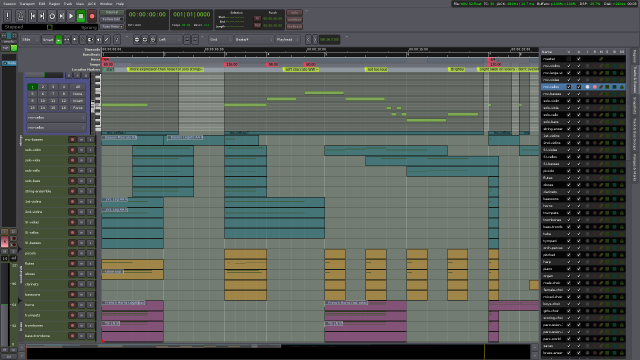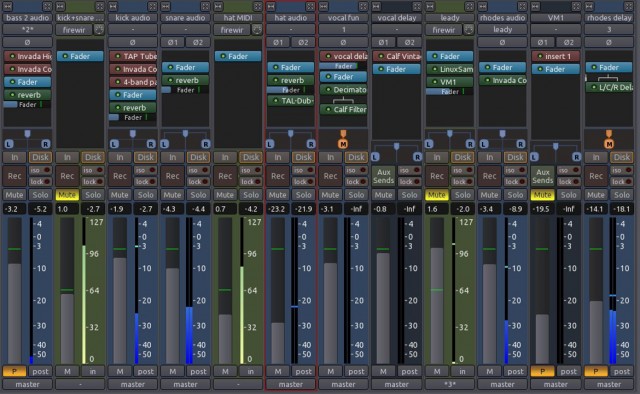
Look, Ma, MIDI!
Ardour has long been software that you probably wanted to want to use. Fully free and open source, supporting standards for plug-ins and file interchange, Ardour is software that arguably the whole industry needs to exist. That is, even if you don’t use it, you might benefit from having a reasonable competitor that pushes openness and interoperability, that can innovate with open source code as much as commercial options do.
Now, Ardour is here in a version you may actually want to use.
It’s not that there haven’t been people getting work done with Ardour in the past. (Don’t forget the clever, proprietary derivative Harrison Mixbus, too, which proves proprietary and open projects can work together.) Ardour has been eminently usable and stable (in non-experimental builds), with some seriously-impressive functionality, all for free. And it’s been the preferred traditional DAW alternative on Linux. The problem has been that Ardour has asked a lot in return, with a sometimes-primitive user interface and major missing workflow features – most notably, the ability to work with MIDI data.
That makes this big news. After a long wait, Ardour 3 is here – initially for Linux, but with a Mac OS X version coming shortly.
And now you can enjoy some of the more innovative features alongside stuff you need, like MIDI.
Ardour also has a remade, grown-up website to explore, but here’s the bird’s eye view of what’s new – especially as we wait on those Mac builds:
- Full MIDI support – record, edit, playback, and work with plug-in instruments not only in VST and AU format, but LV2, as well.
- Parallelize DSP for multiple-processor systems.
- Improved signal handling, including open-ended matrix-style patching and routing. (This one’s important – Ardour has long been flexible with routing and friendly to those used to working in studio setups. Now those features are better, still.
- Solo and monitor more like a mixer, including Solo Isolate, corrected AFL/PFL.
- Non-destructive recording.
- Strip silence.
- MIDI binding maps and improved support for Mackie Control.
- Advanced sync/chase modes for MTC, MIDI Clock.
- Improved performance: 64-bit timeline, resizable disk buffers, support for JACK Session, and an undo that uses less memory and improves speed.
The announcement comes at a unique moment in history, with serious questions about the health of Pro Tools maker Avid as a business. (I’ve not commented on that situation because I feel I’m not educated enough on the details, but it is troubling, to say the least.)
In the larger scheme of things, though, it seems important that we have an open solution, as it could benefit the whole ecosystem of music tools. And prime Ardour developer Paul Davis is the right man for the job, as the creator of inter-app audio standard JACK.
Check out what’s new in detail, or, if you’re new to Ardour yourself…
See the more-polished, up-to-date feature tour on Ardour’s site.
And when you’re ready, you can build Ardour for free on Linux or pay as little as US$1 for a subscription. (Seriously.)
More images, revealing that Ardour’s UI is finally looking nicer:



Now, extensive plug-in support includes compatibility with virtual instruments, via that MIDI support. Images courtesy Ardour.